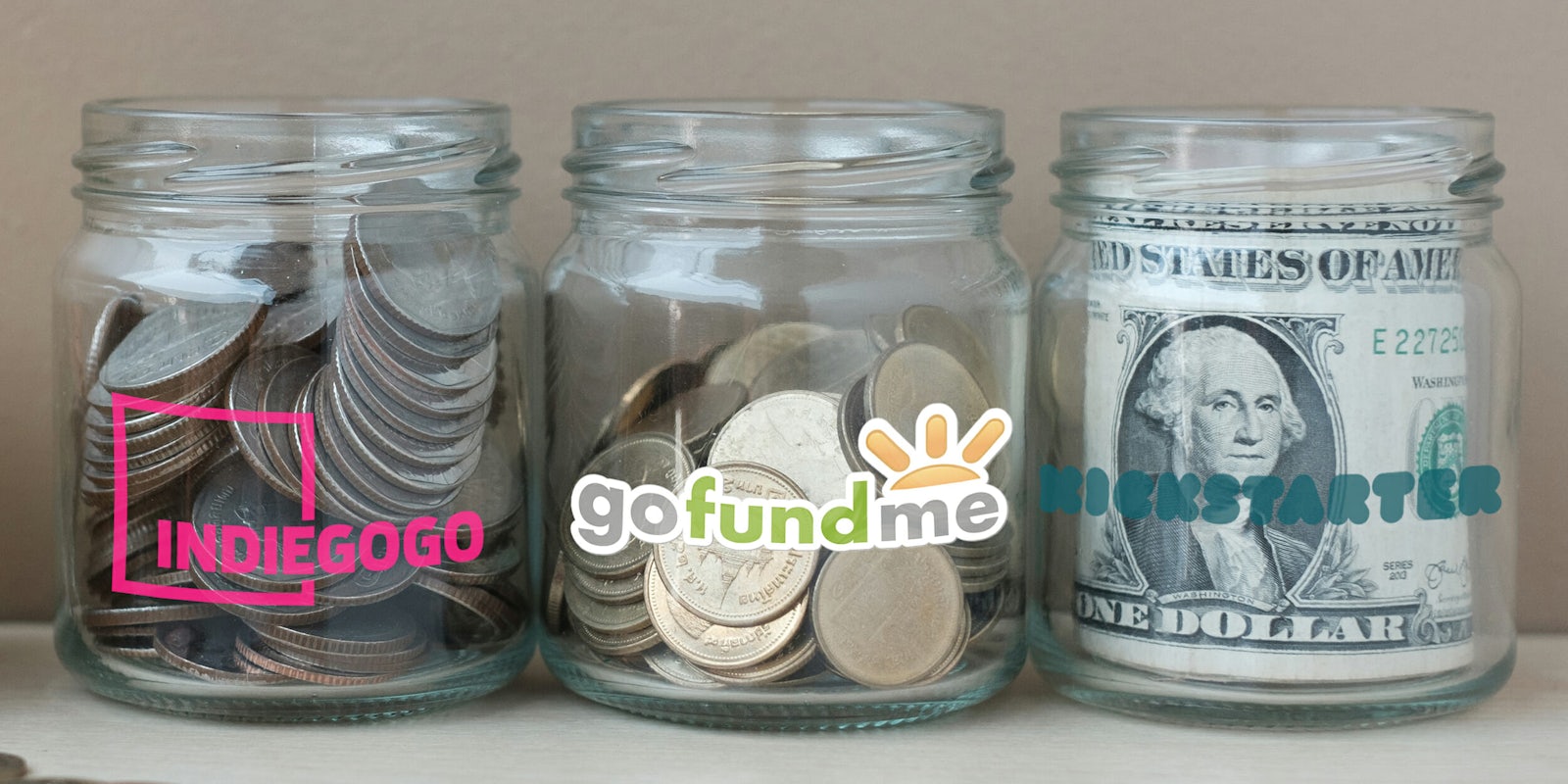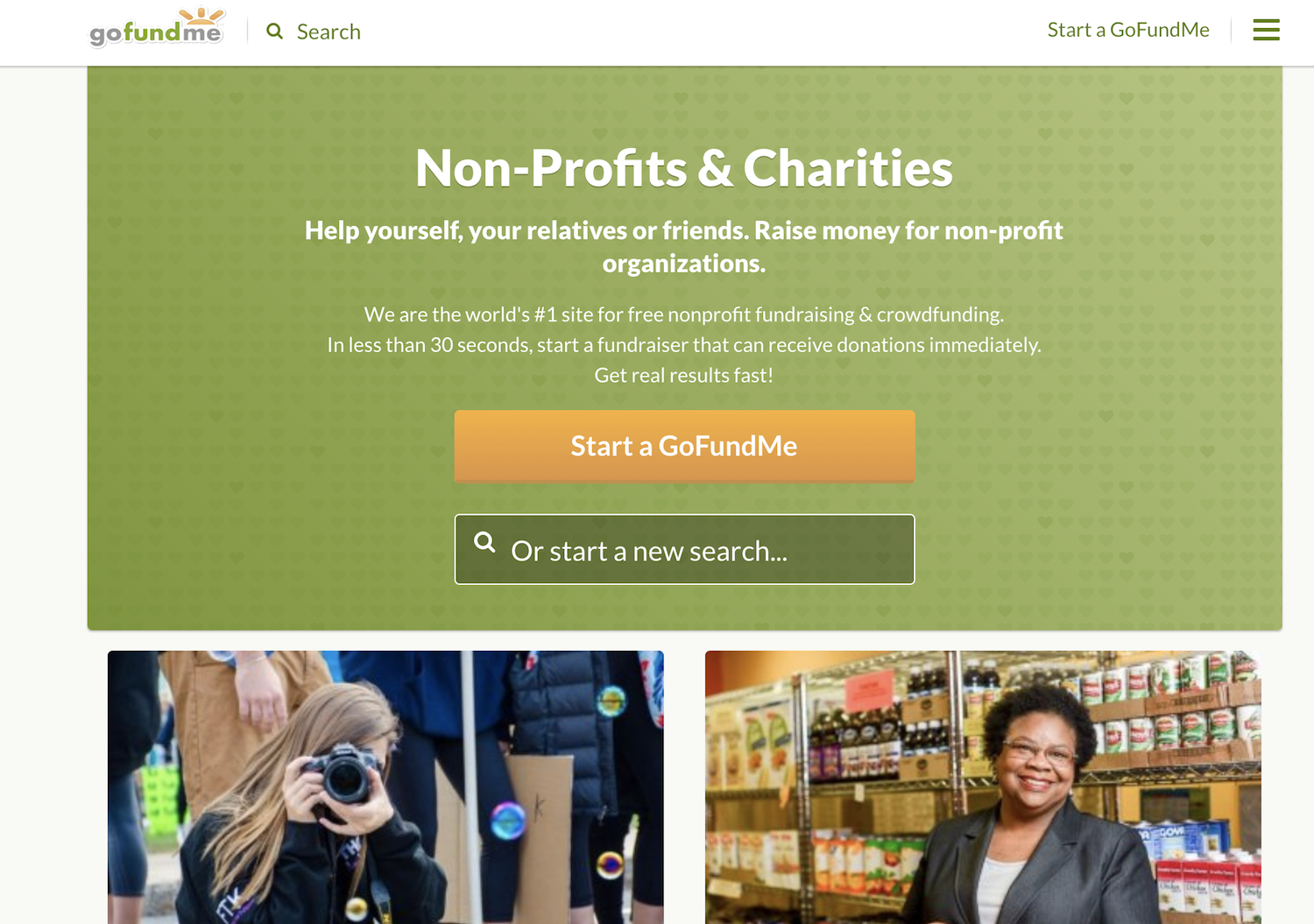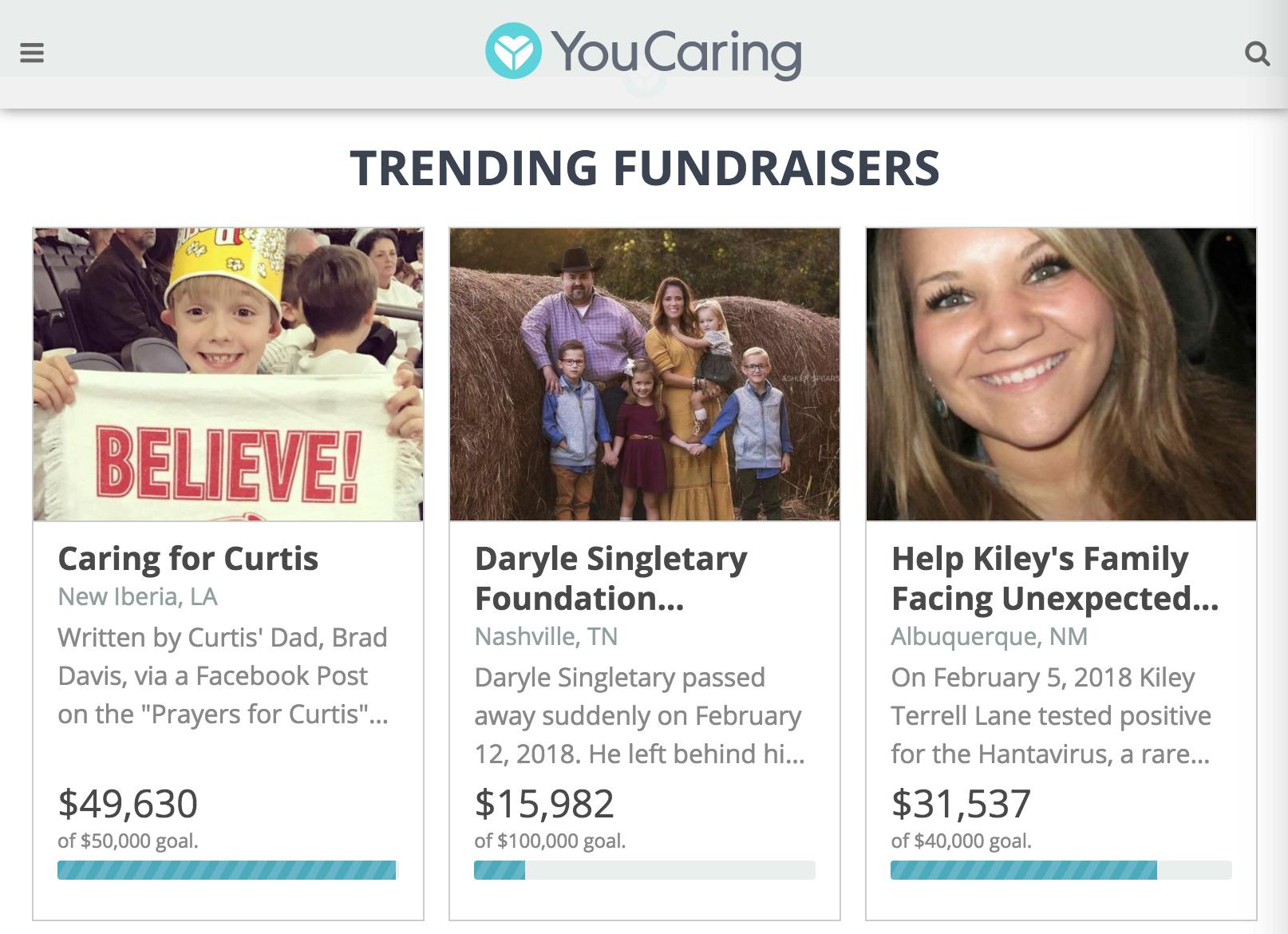There are dozens of crowdfunding sites, so finding the right one for your project can be a pain, especially when you’re in a pinch and every cent counts. For those looking for GoFundMe alternatives, we’ve stacked the three of the most prominent crowdfunding sites against one another to help you find the solution that best fits your needs. It’s Kickstarter vs. Indiegogo vs. GoFundMe vs. YouCaring. Which crowdfunding site will earn your dollars? Let’s find out.

GoFundMe
Before we get into the alternatives, let’s cover the basics. GoFundMe is designed for personal funding. You can fund a business with it, but there’s a reason “me” is in the name. GoFundMe has the fastest fund withdraw time of any service on this list. It’s also not set up to fund a business. While you can set reward tiers, the site lacks the community and data insights to help you run your campaign that you might find with Kickstarter. Your main funding base will be people you know since GoFundMe lacks Kickstarter’s community aspects. People aren’t searching the site looking for the next fidget spinner; they’re looking for funerals, surgeries, or other personal causes to donate to.
Here’s more on how GoFundMe works and how to set up a GoFundMe fundraiser.
Is it all or nothing? No, GoFundMe pays you even if you do not meet your goal.
Costs: GoFundMe is a charitable platform, so individual campaigns aren’t charged a percentage fee for their earnings. Campaigns are instead charged a standard 2.9 percent payment processing fee plus $0.30 per donation. GoFundMe makes up for the lack of a percentage fee by allowing donors to add a tip when they check out. The exception is campaigns run by certified charities. These campaigns are subject to payment processing fees total 7.9 percent plus $0.30 platform, which are deducted from each donation. However, donors will receive a tax-deductible receipt.
Project length: Unlimited
Best uses: Trips, art projects, funerals, medical expenses, and rebuilding after a hardship
Can you do fundraisers? Yes, in fact, it’s best set up to be used as a fundraising site for individuals and businesses. Individuals are not charged a percentage fee by GoFundMe.
Disadvantages: No community to discover your business project. Also, while it pays you even if you don’t meet your goal, that doesn’t mean you’ll get enough money to meet your reward obligations.
GoFundMe alternatives
1) Kickstarter
Launched in April 2008, Kickstarter is the most prominent creative crowdsourcing site on the planet. It’s successfully funded over 139,000 projects, raising more than $3.5 billion in the process. With 4,593,592 repeat backers, Kickstarter has a massive built-in audience for your creative project.
Creators offer different reward levels at various costs to entice backers. $1 might only get you a thank you, while larger donations might come with complete versions of your final product or a deep discount for a future purchase. It’s up to the creator to figure out what will encourage backers to spend their hard-earned money.
Your adventure isn’t over once your project is successfully funded. Campaigns that still have time left can introduce stretch goals and bonus rewards for helping raise extra money for a project.
Before you sign up, it’s important to note that Kickstarter can only be used to fund things you can share. You have to make something with the money you raise, so you can’t just fund an idea or a person.
Ultimately Kickstarter’s reputation and massive invested user base is its greatest asset. People browse Kickstarter looking for projects in ways they don’t look at other sites. It’s still up to you to promote your project, but Kickstarter’s name has developed a solid fanbase that gives you a leg up in getting a project funded.
Is it all or nothing? Yes. Kickstarter will only pay you when backers fully fund your project.
Costs: 5 percent of your funding total, plus a 3-5 percent processing fee on each pledge
Project length: 60 days
Best uses: Games, small businesses, films, albums, or anything else tangible you can share.
Can you do fundraisers? Sadly, Kickstarter doesn’t allow personal or charity fundraising. Kickstarter is strictly for projects that produce something. That doesn’t mean you can’t donate a portion of what you make to a charity, but you can’t advertise your project as funding a charity.
Disadvantages: Some users will see Kickstarters all-or-nothing funding approach as a disadvantage. Currently, its biggest issue is its use of a proprietary video player instead of allowing you to upload a YouTube video. Otherwise, Kickstarter is a joy to use—unless, of course, your project doesn’t get funded. Also, the 60-day window can feel short.
2) Indiegogo
Indiegogo is a great backup plan for projects Kickstarter rejects. That’s not to besmirch the crowdfunding site, but given it’s less restrictive campaign rules, Indiegogo is next best place for your business idea. Indiegogo might not have Kickstarter’s massive community, but it has a similar and large dedicated userbase. I prefer Indiegogo’s site for navigating between projects over Kickstarter, thanks to its easy-to-use sorting menus.
One area Indiegogo sets itself apart is its “After Dark” section, a series of projects that are intended for adults only. While the competitors won’t allow adult products, Indiegogo has embraced the industry. These more lax restrictions make it a perfect place for edgy projects but also explain why it doesn’t have the squeaky clean image of Kickstarter.
Is it all or nothing? No. IndieGoGo will pay you even if your project is not fully funded.
Costs: 5 percent overall fee, with a 3 percent plus $0.03 processing fee on donations
Project length: 60 days
Best uses: Video games, board games, toys, books, adult products, movies, or if Kickstarter rejected you.
Can you do fundraisers? No, but the company has partnered with YouCaring for charitable efforts (see below).
Disadvantages: Indiegogo gets less browsing traffic than Kickstarter and has a smaller community around it. Also if you get money from a project, but don’t fully fund it, you may find yourself unable to afford to give backers the rewards you’ve promised.
3) YouCaring
Unlike the other entries on this list, YouCaring is explicitly for fundraising to help people. Whether it’s medical bills, tuition, pet care, funding a mission trip, or raising money for a sports team, YouCaring wants to help you with anything short of starting a business. You’ll notice that YouCaring doesn’t take a percentage of your money when you withdraw your funds, which is its biggest selling point. The site is paid for by donors rather than platform fees, giving you one less headache when it’s time to cash out. YouCaring claims it’s saved users over $50 million in fees since its founding. Like GoFundMe, users are allowed to take money out of their campaign funds while the campaign is still running.
Is it all or nothing? No, YouCaring pays you even if you do not meet your goal.
Costs: The only thing you’ll lose using YouCaring is a credit card processing fee on donations—2.9 percent plus $0.30 per transaction—which is the standard for all crowdfunding sites.
Project length: Unlimited. However, YouCare recommends running your campaign for two to six weeks for the most effective results.
Best uses: Getting back on your feet, funerals, medical expenses, and rebuilding after a hardship.
Can you do fundraisers? Yes. In fact, it’s all YouCaring is for. There are plenty of platforms to fund your app or board game, but YouCaring is just for philanthropic fundraising. YouCaring’s community aspects give your project a better chance of being seen by people looking for a cause to care about.
Disadvantages: It’s only usable for charitable giving or raising money for a project that helps people. YouCaring also doesn’t get as much traffic as GoFundMe, though to be fair, the people who go there are looking to help someone.
Best site for a business: Kickstarter
When it comes down to it, Kickstarter is still the king. Indiegogo is a great alternative if Kickstarter rejects your idea, but for the maximum number of eyes hitting your project, Kickstarter leaves the competition in the dust. Yes, it’s more difficult to deal with, but its rigid systems encourage creators to put their best foot forward. The results speak for themselves.
Best site for a fundraiser: GoFundMe
The winner “best crowdsourcing site for fundraising” goes to GoFundMe thanks to their fast processing times. YouCaring is a very close second thanks to its comparable payment processing speed, and given its recent partnership with Indiegogo, it may soon be the best option. But for now, GoFundMe’s user base pushes it over the top. If you’re trying to pay for a tragedy expense, say a funeral or a medical bill, time matters. However, for religiously motivated fundraisers, you might want to give YouCaring a second look due to its specific categories for religious giving.
Editor’s note: This article is regularly updated for relevance.






